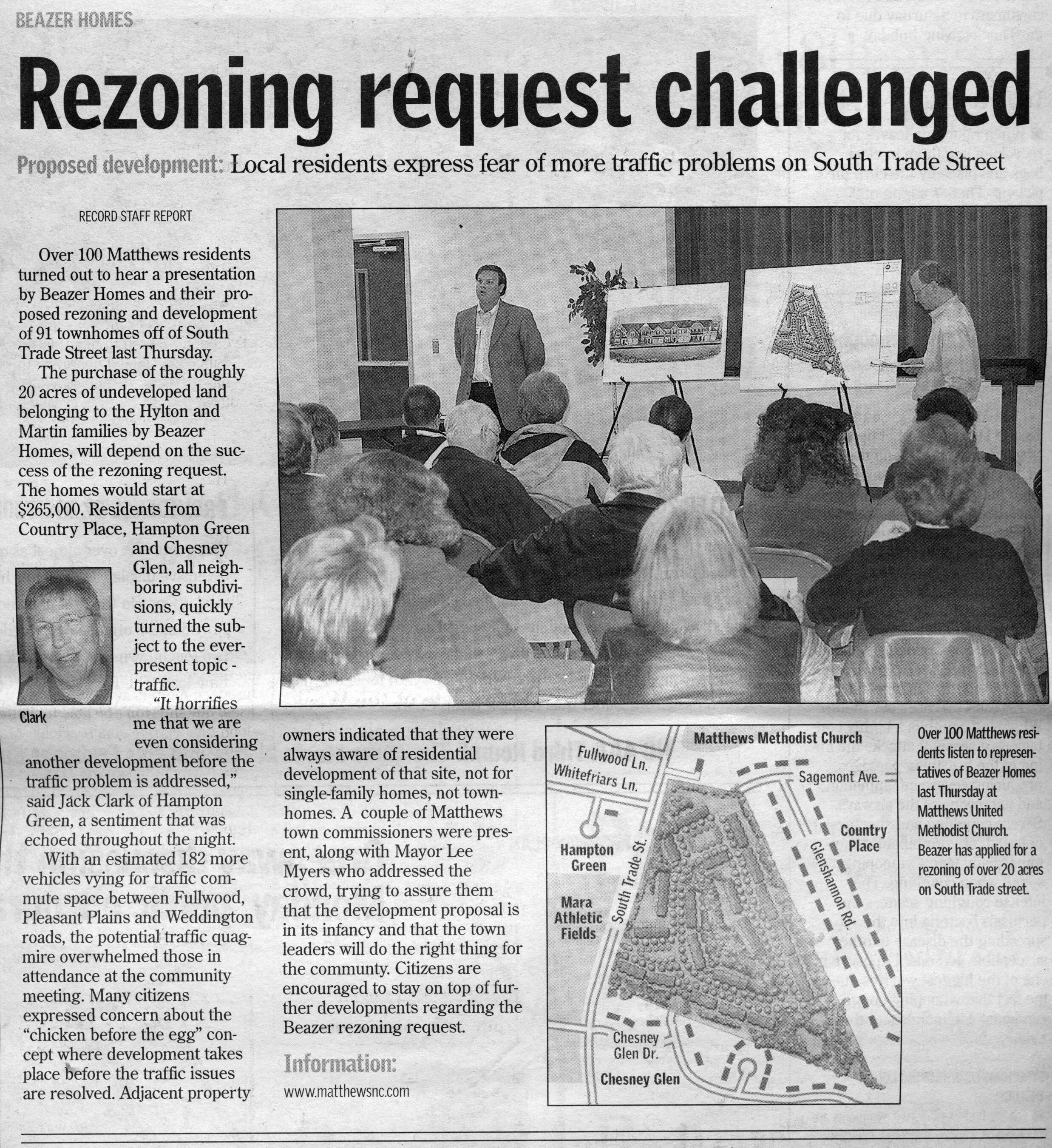Economic Development in Matthews: Become proactive
Monday’s meeting at Town Hall highlights passion and perplexity around the topic
Matthews’ tax base is one of the town’s strongest suits and is the envy of neighboring communities. With the intention of maintaining a healthy blend of residential and commercial mix, the town staff hired a consultant to walk them through the process.
Their findings: A person or entity, hired by the town, and working with the Chamber, the Board, and an Advisory Board made up of community and business leaders, to proactively seek out development opportunities currently going to places like Ballantyne.
A joint meeting held Monday at Town Hall brought up a recurring them. Less dependence on residential and more on quality commercial projects, such as large offices which lure professional companies. The theory? Such employment centers would attract major employers that would live, work, and invest in the town.
A nasty word through this process has been “retail,” which flustered many local businesses who have followed this process. Several downtown landowners attended and worried about being overshadowed by the concept of major developers calling the bulk of the shots.
Bigger is not always better, was landowner Mary Yandel’s sentiment.
“People at Town Hall have a tendency to make decisions from their offices. They talk about all this vacant land or ‘potential land’ and ‘land use,’ as if they own it.”
As if, Yandel went on to explain, the landowners and their property and businesses are inconsequential.
A landowning individual from Riggsbee Salon on N. Trade was perplexed by the lack of discussion on property in downtown Matthews, particularly “retail,” which she said includes over a half-dozen individual tenants.
“Looking to our east [at Pineville], we can see what a heavy commercial tax base looks like,” pointed out Mayor Lee Myers, who attended the meeting, along with the entire Board of Commissioners, the Town Manager, and many department heads. “Looking to our west [at Mint Hill] we can see the effects of too residential tax base.”
Besides the tax base issue, the most important reason to invest in an Economic Development position, many said, would be that the Town would have a dedicated “Go To” person who can provide guidance to the town, and the developers interested in setting up shop in Matthews.
“We know the needs of businesses looking for a place to land,” said Matthews Chamber of Commerce Director Tina Whitley, “because we get the phone calls all the time. To have someone in a position to work with these inquiries would be great!”
Frank Warren, who facilitated the meeting, emphasized the function of an economic developer.
“They would not be making land use decisions, that’s the Planning Board’s function. They would not replace the Chamber of Commerce, as they have a distinct role in business development. This is about Matthews providing a place to do business and it’s about having someone in an advocacy role who can let all these other departments do their job.”
But many landowners and businesses in Matthews, particularly downtown, remain adamant about broadening discussions with regard to zoning and development. One of those is Jim Johnson who envisions, like many others, the downtown as an urban village with real businesses allowing local residents to do commonplace things.
“My benchmark for success will be when I can work, live, play, and shop without having to get in a car,” he said. “Walking and biking around the core of Matthews should be commonplace.”
Admittedly partial to downtown, Johnson speaks for many others, inside and outside the business community who reiterate the notion that Matthews leaders make creative development difficult.
“If we want to further economic development in Matthews,” Johnson said, “my advice would be to re-read the Vision Statements, re-write our zoning ordinance (to allow for more innovative development), talk witht eh landowners in our urban core and see what’s on their minds when it comes to development, and create the ED committee out of staff, commissioners, business owners, and developers.”


























